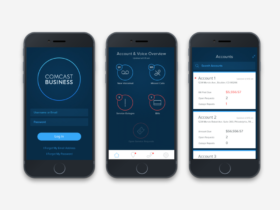If you’re contemplating expanding your flourishing fashion globally, there are crucial factors to bear in mind before diving into this exhilarating endeavor. From evaluating cultural compatibility to navigating intricate legal frameworks, this article serves as your comprehensive guide to achieving international triumph. Prepare yourself for an exciting journey filled with rewards as you take your business to new horizons!
Consider Citizenship by Investment Options
When expanding internationally, it’s worth considering citizenship by investment programs. Some countries offer residency or citizenship in exchange for investing in their economy.
Consider Economic Citizenship
Economic citizenship, also known as citizenship by investment, allows you to gain citizenship through an investment in a country’s economy. Popular options include investing in real estate, government bonds, or setting up a business. Programs like the St Lucia Citizenship by Investment and similar programs in Antigua and Barbuda offer citizenship for investments ranging from $150,000 to $200,000.
Economic citizenship provides benefits such as visa-free travel, tax incentives, and a second passport as a “Plan B.” However, these programs can be expensive, and citizenship may not provide as many rights as citizenship by naturalization. Thorough research is essential to find a program that suits your needs.
Consider the following when exploring economic citizenship:
- Cost and investment options: Real estate, bonds, business, etc.
- Processing time: Some programs take 3-6 months, while others may take 1-2 years.
- Visa-free travel: Check which countries you can access with the new citizenship.
- Tax obligations: Be aware of potential tax responsibilities in your new country.
- Residency requirements: Some programs may require a minimum amount of time spent in the country.
- Inheritance and citizenship passing: Confirm if citizenship can be passed on to spouses or children.
While economic citizenship allows you to expand your business globally, it’s not a one-size-fits-all solution. Conduct thorough research to explore all your options before investing in a new citizenship. With proper diligence, you can find a program suited to your needs and budget.
Analyzing the Global Market Opportunity
Expanding into new global markets is not just exciting; it’s also a significant risk. Before taking the plunge, it’s crucial to carefully analyze both the opportunities and challenges that lie ahead.
Market Potential
Start by looking at economic and industry growth forecasts for your target countries. Assess if there’s a demand for your product and identify who your competitors will be. Consider how you’ll adapt to different customer needs and preferences. For instance, if you’re in e-commerce, delve into online shopping habits, preferred payment methods, and shipping/return policies in your target markets.
Regulations and Trade Barriers
Understanding import/export rules, local business laws, and any restrictions for foreign companies is paramount. Consult legal experts to ensure you have the necessary permits, licenses, and compliance in place. Additionally, be mindful of cultural differences and sensitivities, as what’s acceptable in one place may be taboo in another.
Partnerships and Localization
Consider partnering with an established local company to minimize risk in a new region. Local partners understand the market dynamics and can assist in localizing your brand. This goes beyond just language – it involves adapting images, references, and even product attributes to resonate more with customers.
Successfully expanding globally is undoubtedly challenging, but following these steps will set you on the path to success. With thorough planning and the right partners, you can access new growth opportunities and tap into emerging international markets. The rewards of going global far outweigh the risks if you go prepared.
Adapting Your Business Model for New Markets
Copyright: Pexels I License: CC0 Public Domain
When venturing into new markets, adapting your business model is essential to meet different customer needs and cultural norms. Here are some aspects to consider:
Product
You might need to tweak your product or service to appeal to local tastes. Consider how you can customize or redesign to align with different preferences while retaining your core offering. For instance, a food company might introduce new flavors or alter ingredients to match regional cuisines, while an app may need translation into the local language.
Pricing
Pricing is a complex issue. Thoroughly research the costs of living and average wages in your new market. Adjust your prices accordingly, and think about offering tiered price points to cater to customers at different income levels. Analyze local competitors’ pricing to ensure you are in the right ballpark.
Marketing
Your marketing strategy may need to look different for new audiences. Translate your messaging, use local media channels and influencers, and ensure that images and examples reflect the local culture. Establish your social media profiles and online presence from scratch to build your brand.
Summing Up: The Journey Towards Global Expansion
So, there you have it – the major considerations for taking your business global. It might seem like a daunting task, but numerous companies have paved the way and found success. With careful planning, patience, and persistence, expanding internationally can pay off in a big way.
The world is more connected than ever, so seize the opportunities presented by new markets. Do your homework, find the right partners, and go for it. The rewards of becoming a global brand and reaching new customers far outweigh the risks and challenges. Think big, dream big, and don’t be afraid to expand your horizons. The world is your oyster! What are you waiting for?













Leave a Reply